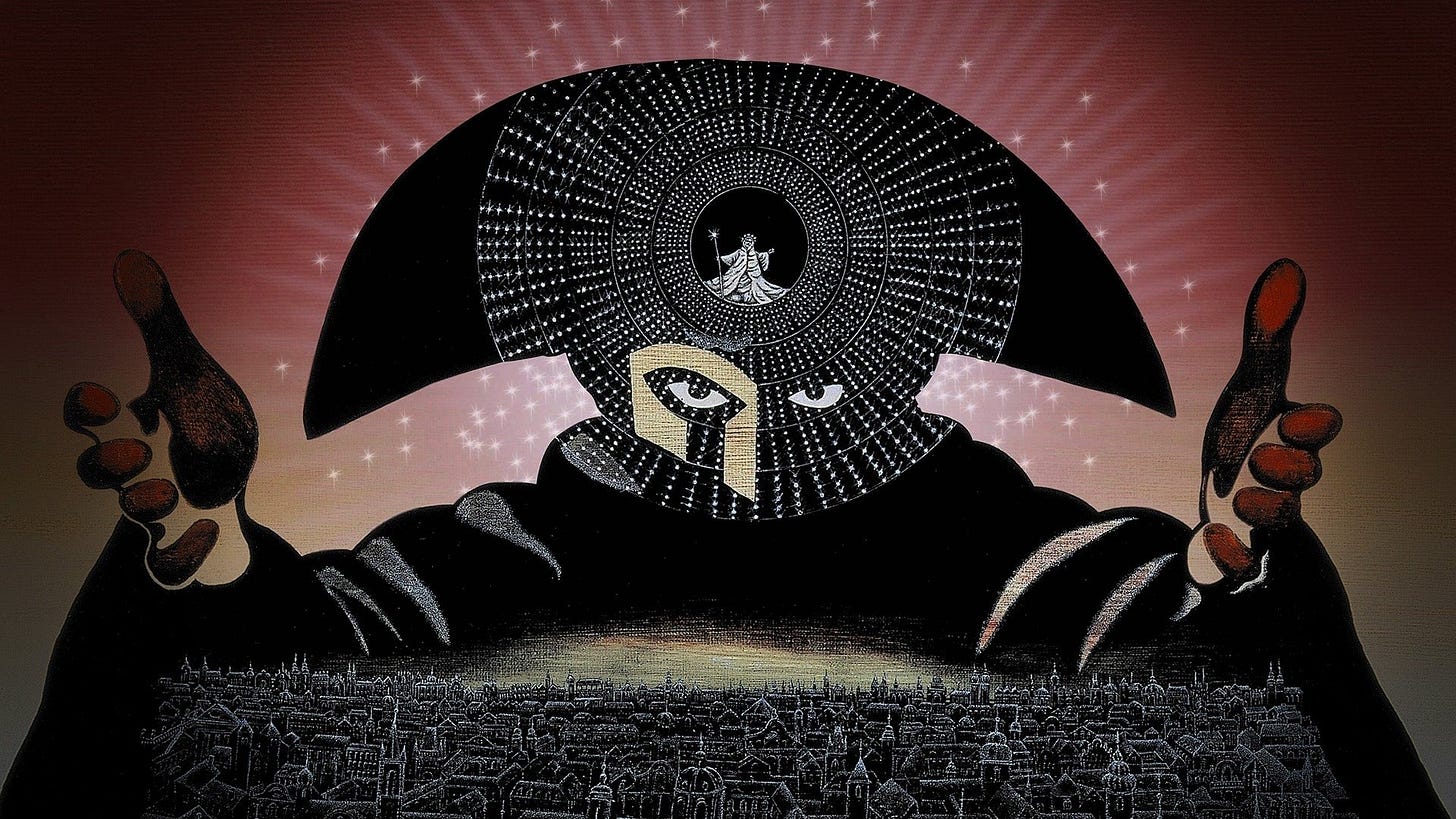Amadeus
Ascoltare Newsletter #11
There’s no wrong way to spend a Sunday. But there’s definitely a right way. And that usually includes copious amounts of coffee, good company, music, and a little reading. Since you’re here, I can offer at least 2 of the above.
I was contemplating how to approach Mozart. The idea of listing some of his work and offer context was a bit bland for my taste. It’s Mozart we’re talking about anyway.
Like Bach, you have to make him human first to understand his music. So, I decided to lay out this newsletter through the prism of Peter Shaffer’s movie “Amadeus”.
Based on very old rumor’s regarding Mozart’s early death and the “Mozart and Salieri” opera by Korsakov (which uses the libretto from Pushkin’s 1830 play), it’s a movie about mediocrity, hubris, and extreme talent.
While it’s not the most historically accurate movie, it gives us perspective on the psyche and ways of the greatest composer of all time.
The Burden of Knowledge
The first word that’s uttered: “Mozart!”
The door opens. A distraught old man is holding a bloody knife, while Symphony No. 25 in G minor explodes:
(It is said that he composed this symphony in two days, when he was 17 years old)
A murder was confessed. And now Salieri is carried through the snowy roads of Vienna, while the rest of the city is waltzing.
“That was Mozart”
The juxtaposition of divinity and vulgarity, expectation and injustice, want and lack are constant themes that torture the viewers as much as they tortured Salieri.
An accomplished musician during his time, appreciated by everyone, yet… he knew.
He understood that Mozart’s music was superior, divine. It was the music he prayed to God HE could write, for him. Yet, God chose a vile, vulgar, and immature man to compose such music.
That was torture.
Why? Why gift someone with the ability to appreciate music but never be able to come close to compose at the same calibre?
We are now in a room where a priest urges Salieri to confess to unburden his soul.
The musician begins playing a few of his tunes. Very famous during his time indeed. The priest doesn’t recognize a single one. Until…
The priest starts humming along. You did too. That’s Mozart.
Mediocrity
When the Italian kapellmeister meets the young Austrian composer and hears his music for the first time, he sees him as unworthy of his gifts. Cursing, chasing women, mocking opera seria, and writing spoofs like this one:
He looks up at the sky and blames God that he didn’t choose him, even though he had devoted his life composing music for His glory.
We're constantly reminded how much more talented Mozart is. Salieri sees this as God laughing at him.
The unmatchable harmony of the piano concertos (listen to 2:20):
The melodic development of his chamber music:
His mastery over contrapuntal music.
The most powerful, ingenious operas:
Salieri conceptualizes the most sinister plan. To kill the Voice of God. Kill Mozart.
Commission a death mass, a Requiem, and once he’s dead, Salieri would present it as its own.
Redemption
“Confutatis maledictis,
Flammis acribus addictis:
Voca me cum benedictis.”
Confutatis, doomed to flames of woe .
“Do you believe in it”, he asks Salieri.
Mozart has fallen ill by the ghost of his judgemental father. Unable to finish the Requiem, he has to dictate it to his “friend”.
He begins. Salieri is, for once, the instrument of God, almost touching the divine genius of the composer. But most importantly, he realized the human side. God teaches him a final lesson.
Mozart begins to sing the second passage, voca me. “Call thou me with the blessed.” He’s praying.
The underlying question is “will God accept me?”. At that moment, he’s hanging over the “real fire”.
Acceptance
“My music growing fainter… and his…”
“Mediocrity is everywhere. I absolve you”, he says as his favorite music play in his head.
What happened?
Indeed, Mozart’s music is immortal. Salieri was a celebrated musician but he never quite reached the heights of the greatest composers.
During his life, Salieri helped Mozart, both politically and financially. They were friends and equal colleagues and he was one of the three people present at his funeral.
When rumors of Mozart’s murder started spreading, he became heavily depressed. In the final years of his life, suffering from dementia, he claimed that he actually did it - but there’s no evidence.
CODA
Salieri’s monologue is very human. He was standing in front of a giant, a cosmic horror event in its truest form. He felt so little, so minute, that the only two logical conclusions were submission or rebellion.
The paradox is that only those who understand suffer.
I often see myself in that position when it comes to music. I’m able to understand and appreciate true musical genius, but I lack the means and temperament to do anything about it.
At the same time, society shares my burden in the sense the conditions that would allow geniuses to shine unfiltered have been lifted.
The original theatrical play didn’t address a priest but the audience itself. Salieri absolved YOU of your sins.
Spotify List:
Share this with every musician, uninitiated pop listener, classical music connoisseur, snob aristocrat, the bourgeoisie or proletariat:


